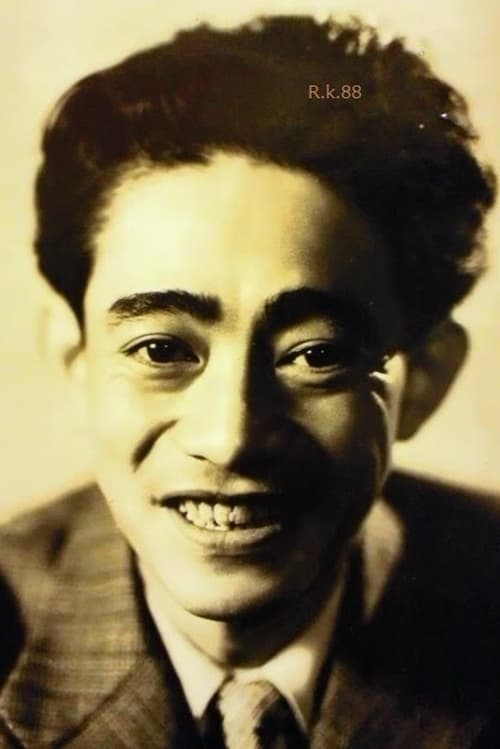
Kenichi Enomoto
출생 : 1904-10-11, Aoyama, Tokyo
사망 : 1970-01-07
약력
From Wikipedia, the free encyclopedia.
Kenichi Enomoto (October 11, 1904 – January 7, 1970) was a popular Japanese singing comedian, mostly known by his stage name Enoken.
A major innovator during his heyday, Enoken's stage shows, radio appearances, and film roles were a major influence within Tokyo theatre before World War II, and was a catalyst for the revival of comedy in the postwar period.
Born in Aoyama, Tokyo, the son of rice cracker shop owners, Enomoto fell under the spell of such stars of the Asakusa Opera as Taya Rikizo and Fujiwara Yoshie, and in 1922 he made his stage debut at age 18 as a chorus member of the Asakusa Kinryukan Theatre. The Great Kanto Earthquake of the following year dealt a great blow to the opera world in Tokyo, at which time Enomoto shifted to comic theatre. Playing small roles in various comedy productions, he returned to the Asakusa stage in 1929 as part of the troupe Casino Folly. The following year saw him launch his own troupe, Enoken Gekidan, which would firmly establish him as a leading figure in Tokyo theatrical circles. In 1934, he starred in the movie Enoken no Seishun Suikoden (Enoken’s Tale of Youth’s Folly), and gained national popularity. His subsequent film career saw him parody a whole parade of Japanese historical personages, including Kondo Isami and Sakamoto Ryoma, in a series of "jidai-geki" (historical dramas) and "chanbara" (samurai drama) films, including some directed by Kajirō Yamamoto, Nobuo Nakagawa and Akira Kurosawa.
Enomoto became afflicted with necrosis of the right leg in the 1950s, which required amputation, curtailing his film and stage career. He did, however, make a legendary comeback at the Shinjuku Koma Theatre 1963 wearing a prosthetic leg. He died in 1970, and is entombed in Hase Temple in Nishi-Azabu, Minato, Tokyo, on whose tombstone is inscribed "The King of Comedy".
Description above from the Wikipedia article Kenichi Enomoto, licensed under CC-BY-SA, full list of contributors on Wikipedia.

Ryunosuke Edohara
A country boss gives up his way of life because of his daughter's marriage.

1962 Japanese movie

A group of four chorus singers leave their hometown in Kyushu and go to Tokyo to become stars. It’s a musical comedy that shows Segawa’s talent.

Japanese comedy film.
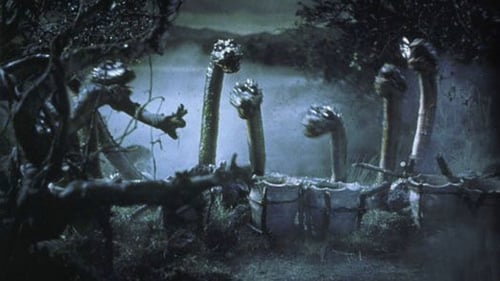
God of Yaoyorozu
The legend of the birth of Shintoism. In Fourth Century Japan, the Emperor's son Ouso expects to succeed his father on the throne, but Otomo, the Emperor's vassal, prefers Ouso's stepbrother, and conspires to have Ouso die on a dangerous mission he has contrived. But Ouso prevails in the mission and returns to his father's castle under a new name, Prince Yamato Takeru. Otomo plots to have the Prince sent into even greater danger, but Otomo is unaware that the gods have favored the Prince and the outcome is far from what any of them expected.

An entertainment movie featuring familiar faces of Toyama no Kin-san, Nezumi Kozo, Yaji Kita, and others who traveled around the Tokaido. Written and directed by Kunio Watanabe. A group of samurai rushed into the Sakura Opera Troupe in the mountain village, chasing a young woman named Chiyohime who was promoting dancing around Edo Asakusa area. Suri Nao and Kinshiro Toyama was there and saved her. Meanwhile, the samurai asked the acquaintance Nezumi Kozo Jirokichi to find her. Jirokichi visited Kinshiro 's house, and found her there…
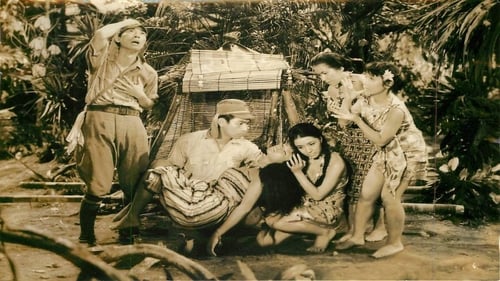
Musical-comedy about nine soldiers deserted on an island in South Pacific.

Sarukichi
The story is a dramatization of the Japanese folklore legend of Momotaro, the Peach Boy, who with his trusted companions of dog, monkey and pheasant fought against evil in olden times.

Based on a comic strip by Kaoru Akiyoshi. First in a four part film series.

Furaibo Kinta

Keita, after his death, was taken to the court of heaven as Defendant No. 1361, where his past was projected. He was formerly a favorite of the Meriken Circus troupe, yet he sinned by exposing a certain woman. During the screening, he realizes what he has done, and fate gives him a chance to redeem his sins.

Once an average and seemingly ordinary Tokyo girl, she suddenly finds herself as a TV star owing to her discovery by a casting company, which noticed photographs that her cousin had sent. When another actress falls ill she is given the role instead. Her first film is a success propelling the young actress to popularity, her own fans, money and a house. While everything looks dandy from the outside not all is well within the family however.
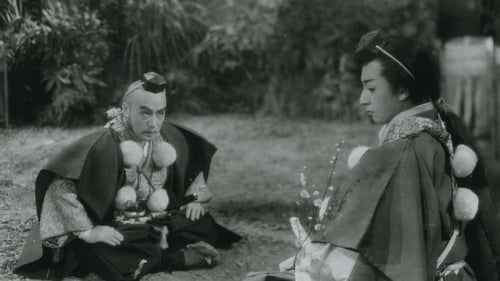
Porter
12세기 말 가마쿠라 막부의 무장 미나모토 요시쓰네의 도피 여정을 담은 노(能) 와 가부키 의 내용을 영화로 옮긴 구로사와 아키라의 첫 시대극. 원작에는 없는 수다쟁이 짐꾼 캐릭터를 주요 인물로 첨가하여 원작의 비장함을 비틀고 있는데, 당시 인기 절정이던 코미디 배우 에노모토 겐이치가 이 짐꾼 역을 맡아 독특한 분위기를 만들어 내는 데 일조했다. 노의 합창 부분을 서양식 코러스로 편곡하는 등 일본 전통 예술을 패러디한 뮤지컬영화라 할 수도 있다.
구로사와 영화로는 드물게 1시간이 채 되지 않는 짧은 상영 시간을 가지고 있는데, 이는 태평양전쟁 말기라는 제작 상황을 반영하는 것이다. 군부의 검열이 더욱 심해지는 가운데 필름을 비롯한 제작 물자의 공급도 어려워져, 대작은 제작에 착수하는 것 자체가 불가능했다. 이 작품은 “신이 3개밖에 없어 영상과 내용이 모두 간단하다”는 이유로 먼저 촬영에 들어갈 수 있었다고 한다. 촬영지는 영화사의 뒷산이었다. 촬영 중 종전이 되어 크랭크업 무렵에는 미군들이 촬영 현장에 구경하러 오는 일도 자주 있었는데, 그중에는 구로사와가 존경해 마지않던 영화감독 존 포드도 포함되어 있었다는 에피소드가 있다. 1945년 9월 촬영이 완료되었으나, “주군에 대한 충성이라는 봉건적 사상”을 취급하고 있다는 이유로 GHQ(연합군최고사령부)에서 상영 금지 처분을 내려, 샌프란시스코 강화 조약이 체결된 후인 1952년에야 뒤늦게 개봉될 수 있었다.
(한국영상자료원 - 2010 구로사와 아키라 탄생 100주년 특별전)


A young, talented singer (Misora) is orphaned, not once but twice, and has to turn to a rather unlikely, and unwilling, parental figure, while avoiding her wealthy, absentee father, his hired goons, and the neighborhood fortune teller (Enoken) who's after the reward money.

Tobisuke
Tobisuke, puppeteer in Kyôtô, saves O-fuku's life. Wounded in the head, it can now count to three. O-fuku invited him to meet her mother so she can heals him with a golden fruit. But O-fuku and Tobisuke had to cross the valley of death filled with fantastic creatures, will they survive?

Near the end of the Taisho era (1912-1926), Enokichi, a popular figure in the world of boxing entangled in the Yakuza business.

A modern take on history with songs and comedy presented by Enoken (as Gonza), Fujiyama (as Sukeju), and Kasagi (Gonza’s wife Osaki).

Postwar! Baseball! Comedy! Enoken plays a superfan of the Yomiuri Giants – the real Tokyo team, with many of its star players "acting" as themselves – who, despite his utter lack of athletic abilities, becomes embroiled in their successes, and their personal lives. Will Enoken help the Giants take the pennant?

Omnibus of love stories from 1947 directed by famous directors, featuring big stars.

After learning that he has accidentally killed a man in a fight, Unokichi must look after the man's pregnant widow.

'Three-Footer' Sagohei

Hyoroku Oishi

A bizarre murder at a hot springs resort threatens to disrupt an Edo detective's (Hasegawa) vacation. When his hot-blooded wife (Yamada) starts snooping around, however, he finds himself reluctantly drawn in to the case.

Son Goku
Second part of the Comedy-Musical about the legendary Monkey King.

Son Goku
Comedy-Musical about the legendary Monkey King.
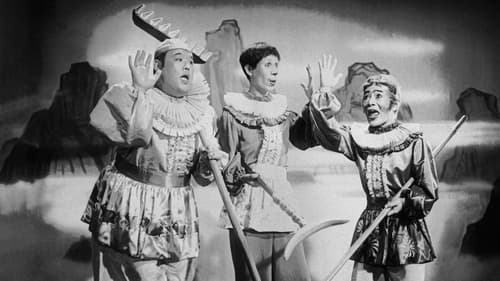
Son Goku
A legendary pre-war comedy operetta starring Enomoto Kenichi, Hideko Takamine and Li Xianglan. The Sanzo Ikkou continues its westward journey, on a mission to prevent a demonic resurrection. As Genjo Sanzo, Cho Hakkai, Sha Gojyo, and Son Goku (Kenichi Enomoto) fight their way to their goal, their path is fraught with internal strife.

Santa
Enoken no wanwan taishô AKA Wanwan Taisho AKA Bowwow General directed by Nobuo Nakagawa

Enoken trains to be a great sumo wrestler.

Enoken's pickpocket Kinta (returned from the Chakkiri Kinta movies) finds some unexpected trouble: a stolen diamond necklace he just can't seem to get rid of!

Enoken's anachronistic take on the beloved (and already very funny) Edo-period novel "Shank's Mare," aka Tōkaidōchū Hizakurige, in which Yaji and Kita, two plebeian nobodies, have all sorts of strange and colorful encounters on the long road from Edo to Kyoto.

Two hyper-competitive salarymen let their workplace rivalry spill over into their private lives, as both men try to one-up each other on a luxurious beach vacation neither's family can afford.

A typically modern take on the well-known Naniwabushi character (and real life 19th-century gangster) Mori no Ishimatsu, whose proverbial stupidity Enoken takes to farcical extremes.

The legendary ninja Kurama Tengu (Enoken) uses his superhuman powers to help free a band of street urchins from their Fagin-like master. The film's incredible climax, when Enoken fends off dozens of men attacking with ladders and handcarts, brings to mind a slightly less dextrous Jackie Chan.

An irreverent take on a medieval Noh drama, Hokaibo sees Enoken play the titular monk whose lusts drive him to murder.

Enoken plays legendary ninja Sarutobi Sasuke, whose magical powers never help as much as expected - in war or in love.

1930s Japanese comedy.

A comedic tale told in four parts, this film follows the antics of the pickpocket Kinta as he is pursued by a low ranking deputy named Kurakichi. The two get into all manner of peccadilloes and encounter a range of peculiar characters as their game of cat and mouse moves across the countryside in the last days of the Tokugawa Shogunate.

Enoken
The story picks up from Part 1 as Enoken's young scion forsakes his wealth and takes a department store job – in drag and sometimes blackface – to prove to the girl of his dreams that he be a hard-working, serious man.

Enoken plays a cloistered rich kid whose father hires a disreputable tutor to teach him how to really be a millionaire: by drunken debauchery, women, and song.

Enoken plays a frog-oil-hawking conman whose claims to martial prowess land him in hot water with the local samurai gentry - but not before he falls in love with exactly the wrong girl. Another musical comedy period film quick on the heels of the earlier Kondo Isami.

Kondo Isami / Sakamoto Ryoma
Enoken plays both Kondo Isami and his deadly enemy Sakamoto Ryoma in this comedic, song-filled vision of the Meiji Restoration.

Enoken plays a magician real powers come from his magical hat. A jealous theater owner sends girls, then goons, to keep Enoken from performing his grand show!

Studio P.C.L. was specifically founded to make sound films, and this early musical balances the aesthetics of the sound film with those of the stage revue. The king of Tokyo’s revue stage, comedian Ken’ichi Enomoto (Enoken) had made his name in the capital’s theatrical district of Asakusa. The film employed not only the star, but his entire theatrical troupe, and the narrative was structured around scenes which Enoken had played successfully on stage. Billed as offering 'Japan’s number one comedy actor and Japan’s number one musical comedy,' the film self-consciously borrowed from Hollywood musical comedy; indeed, the original posters carried spoof endorsements by Eddie Cantor and the Marx Brothers! Director Kajiro Yamamoto, making his P.C.L. debut, would become a stalwart of the company and its successor, Toho. He was to have a profound influence on Japanese film history as mentor to Akira Kurosawa, who assisted him on a number of films including Horse (Uma, 1941).






